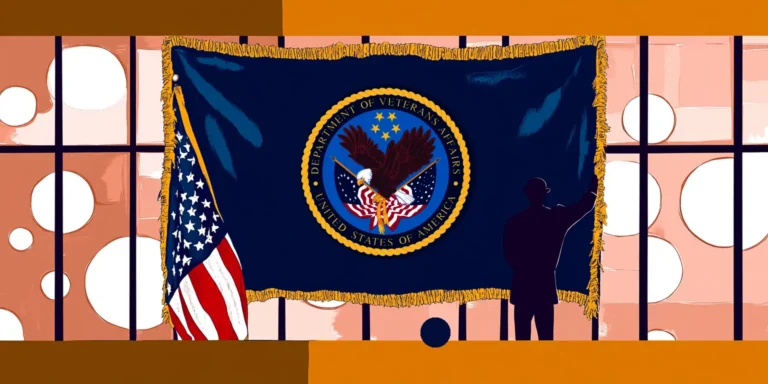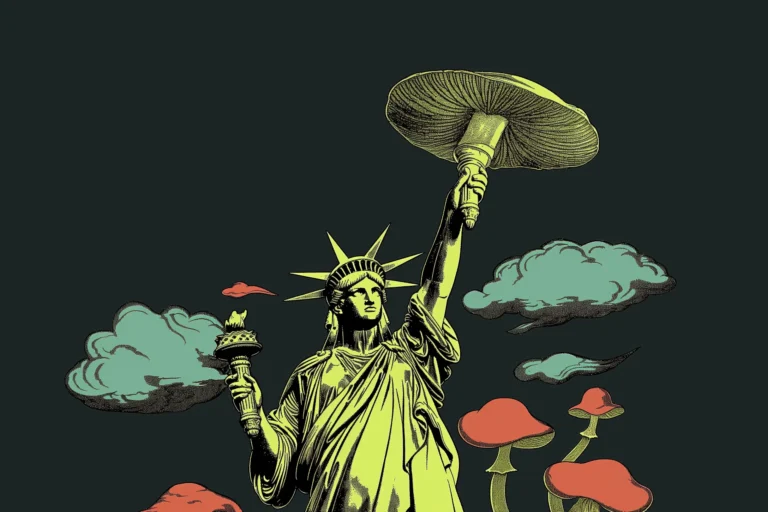This week’s Psychedelic News Roundup examines new research, a fresh push for drug reform, and a win for California psychedelic activists. At the forefront of this forward momentum, researchers from Duke University are aiming to decode psychedelic mechanisms and benefits for conditions such as PTSD, depression, and addiction. Other news includes changes to current psychedelic and entheogenic plant laws in Eureka, California. Additionally, researchers explore a new path forward using psychedelics to treat severe anxiety in patients with cancer.
Duke Scientists Explore Psychedelics as Potential Treatment for Neuropsychiatric Disorders Using Psychedelic Fish

Coming to us from Duke University, researchers are delving into the medicinal prospects of psychedelics, which have resurfaced as potential treatments for disorders like PTSD, depression, and addiction. Despite their prohibition in the 1970s, the scientific curiosity surrounding these substances has reignited, driven by their promising therapeutic effects.
At the helm of this exploration, Duke’s researchers attempt to unravel the mystical workings of psychedelics within the brain. The substances, including MDMA, psilocybin, and LSD are known to alter serotonin receptor functions, possibly lessen inflammation, and enhance communication between specific emotional and sensory processing networks.
Graduate student Minel Arinel spearheads a unique approach by employing hallucinogenic fish to decipher how psychedelics influence the brain. By administering DOI, a legal LSD analog, to larval zebrafish, the team observes the altered behavioral and perceptual responses, providing a novel method to probe the effects of these drugs.
Simultaneously, other graduate students at Duke, Kathryn Walder-Christensen and Karim Abdelaal, are investigating psychedelics’ potential in alleviating opioid addiction and obsessive-compulsive disorder (OCD). Initial human trials have shown psilocybin’s promise in mitigating OCD symptoms, driving further inquiry into understanding the underlying neural alterations.
Keep Up with Psychedelic Trends
Don’t miss the latest psychedelic news, events, companies, and more.
We respect and protect your privacy. By subscribing your info will be subject to our privacy policy. Unsubscribe easily at any time
Furthermore, the exploration extends to modifying psychedelics to retain their therapeutic benefits while negating hallucinogenic effects, aiming to develop safer treatment alternatives. One such endeavor led to the creation of a non-hallucinogenic ibogaine derivative that demonstrated reduced opioid use in mice while mitigating anxiety and depression.
Amidst these investigations, a debate emerges regarding the significance of the trip, or hallucinogenic experience in therapeutic outcomes. While animal models can elucidate the molecular and receptor mechanisms, the subjective human experience, seen as potentially integral to therapy, remains an enigma.
As the psychedelic research renaissance unfolds, Duke’s researchers, armed with a blend of innovative methodologies and a renewed appreciation for psychedelics’ therapeutic potential, are poised to contribute significantly to the evolving understanding of these ancient yet enigmatic substances. Through rigorous investigation and education, they aim to equip the next generation of psychiatrists with the knowledge to navigate the burgeoning field of psychedelic medicine, fostering a paradigm shift that might unveil novel, effective treatments for persistent neuropsychiatric disorders.(1)
California Activists Make Another Attempt at Psychedelic Reform

In an article originally from Marijuana Moment, California activists are advancing a new ballot initiative to legalize a broad spectrum of psychedelics such as DMT, ibogaine, LSD, mescaline, psilocybin, psilocin, and MDMA. The initiative, known as the Psychedelic Wellness and Healing Initiative of 2024, emerges as a response to Governor Gavin Newsom’s veto of a prior psychedelics legalization bill. The proposed measure is set to significantly ease criminal penalties surrounding the possession and use of psychedelics, allowing individuals to cultivate psychedelic plants and fungi for personal use.
The initiative’s architect, Dave Hodges, emphasizes facilitating safe and legal access to psychedelics for medical, therapeutic, and/or spiritual utilization. The proposal outlines a system akin to the early stages of California’s medical marijuana framework, whereby a physician’s recommendation is needed to acquire psychedelics legally. Although the initial draft seemed to permit broad legalization, the focus has narrowed to medically recommended use, with doctor’s recommendations not required for personal use or cultivation but only for purchasing psychedelics from authorized sellers.
The proposal’s regulation of commercial psychedelics activity parallels the existing cannabis laws and allows for an extensive range of businesses to cultivate, manufacture, and distribute psychedelics starting January 1, 2025.
Keep Up with Psychedelic Trends
Don’t miss the latest psychedelic news, events, companies, and more.
We respect and protect your privacy. By subscribing your info will be subject to our privacy policy. Unsubscribe easily at any time
By April 19, 2025, any business incorporated in California could retail psychedelics. The shift towards legalization in California reflects a broader nationwide trend, with a growing number of U.S. voters supporting legal access to psychedelic therapy and federal decriminalization of substances like psilocybin and MDMA, as per a recent national poll. This initiative, if successful, could mark a pivotal step in altering the legal landscape surrounding psychedelic substances in California.(2)
In Related News, Eureka Joins Other California Cities in Psychedelic Decriminalization.

In a recent progressive move, highlighted by CaliforniaCityNews, the town of Eureka, located in Humboldt County, has passed a regulation decriminalizing the possession and cultivation of entheogenic plants and fungi for individuals aged 21 and over. This decision came from Governor Gavin Newsom’s veto of a psychedelic decriminalization bill, illustrating a local response to the state’s hesitation. The unanimous city council vote on October 18 places Eureka alongside Oakland, Santa Cruz, Arcata, Berkeley, and San Francisco, which have already adopted similar measures, reflecting a growing acceptance of these substances at a municipal level.
The initiative underscores a rising interest in the therapeutic potential of entheogenic plants, which are being explored for their efficacy in treating ailments such as depression and addiction. Stanford Professor of Psychiatry Roy King, shed light on the working mechanism of these substances, mentioning their interaction with serotonin receptors and potential to enhance neurogenesis. As explained by King, this interaction helps individuals break free from negative thought patterns, which has been an anecdotal claim by users for decades. The phenomenon of microdosing, where individuals consume sub-perceptual amounts to reap therapeutic benefits without the accompanying high, is gaining traction, aligning with preliminary studies suggesting the effectiveness of psychedelics in alleviating depression and anxiety.
Although the local legislation in Eureka represents a step toward broader acceptance and recognition of the potential benefits of psychedelics, it also mirrors a larger nationwide dialogue on drug policy reform. The action by Eureka’s city council exemplifies a growing trend among California cities taking the lead in drug policy reform, each contributing to a slowly shifting paradigm surrounding psychedelic substances in the United States.(3)
Psychedelics Show Promise for Alleviating Anxiety in Cancer Patients
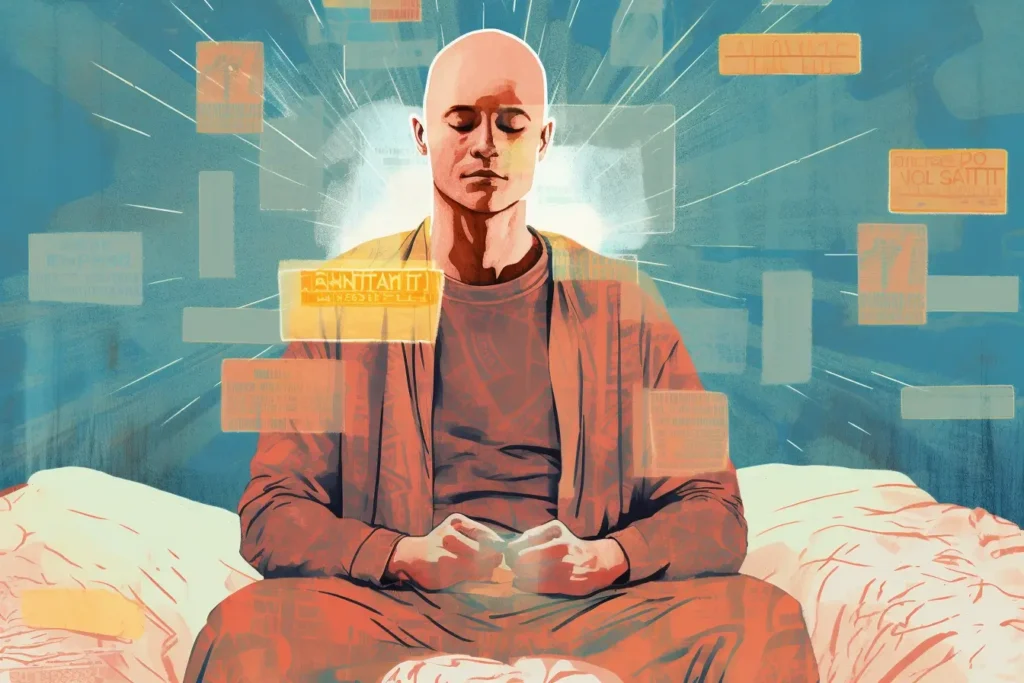
In a story from High Times, the realm of psychedelic research is broadening with several studies investigating the potential of substances like psilocybin and MDMA in ameliorating mental health issues prevalent among cancer patients. At the University of Washington, researchers are delving into the efficacy of psilocybin, a psychoactive compound found in magic mushrooms, in alleviating anxiety in metastatic cancer patients. Similarly, other studies are probing psychedelic therapy’s potential to assist hospice care patients in grappling with demoralization. The overarching objective is to address psychological symptoms that often accompany a cancer diagnosis, focusing on exploring alternative treatments to conventional medications, which often come with long-term commitments and potential side effects.
Amid this burgeoning field of research, the Center for Psychedelic Medicine at New York University (NYU) School of Medicine is spearheading a clinical trial to evaluate psilocybin-assisted therapy for existential distress in advanced-stage cancer patients. Dr. Xiaojue Hu, a prominent psychiatrist and researcher at NYU, emphasizes that this endeavor builds upon preliminary work initiated at NYU during the 2010s. The therapeutic landscape is further enriched by parallel studies at institutions like Emory University, where psilocybin and multidisciplinary palliative care are tested on demoralized cancer survivors dealing with chronic pain. Dr. Hu articulates that the sporadic administration of psilocybin, unlike the daily regimen of antidepressants, might offer a more sustainable and impactful treatment avenue, with lasting effects observed in patients even 14 months post-administration.
Although the preliminary findings are encouraging, Dr. Hu acknowledges that psychedelic-assisted therapy is not a panacea and underscores the importance of further research to ascertain its safety and efficacy. The meticulous design of these trials often incorporates multiple preparatory and integrative therapy sessions alongside psychedelic administration, emphasizing a holistic approach to treatment. The cautiously optimistic outlook is also mirrored by the U.S. Department of Health and Human Services, projecting potential FDA approval for MDMA and psilocybin therapies in the foreseeable future. As the Multidisciplinary Association for Psychedelic Studies (MAPS) anticipates submitting an application for MDMA-assisted therapy for PTSD in 2023, the burgeoning evidence supporting psychedelics as viable therapeutic agents continues to grow, albeit within a carefully regulated and thoroughly researched framework.(4)
Beckley Psytech Initiates Phase IIb Study of Synthetic Psychedelic BPL-003 for Treatment-Resistant Depression
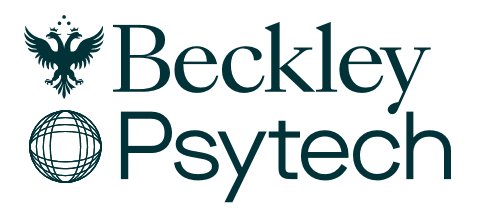
As announced by Beckley Psytech Ltd, a UK-based clinical-stage biotechnology firm, it has officially commenced its multi-site Phase IIb study of BPL-003, a synthetic formulation of 5-MeO-DMT targeted at treating Treatment Resistant Depression (TRD). The trial marks the first-ever patient dosing across 40 sites in six countries: Australia, Germany, Poland, Spain, the UK, and the U.S.. It is the most extensive controlled study on 5-MeO-DMT. This significant step follows Beckley Psytech’s attainment of the U.S. Food and Drug Administration’s (FDA) Investigational New Drug (IND) approval earlier this year, paving the way for a comprehensive examination of this short-acting psychedelic compound.
The randomized, dose-finding trial aims to compare the impacts of medium or high doses of BPL-003 with an active placebo in a cohort of 225 patients enduring moderate to severe TRD. The trial strives to minimize expectancy bias by keeping the patient, investigator, therapist, and outcomes assessor blind to the dose allocation. The efficacy will be gauged using the Montgomery-Asberg Depression Rating Scale (MADRS) at various stages throughout the trial. An open-label extension will also be conducted at select trial sites eight weeks post-initial dosing to assess BPL-003’s enduring effects following a second dose.
Beckley Psytech’s partnership with Fluence for standardized psychological support training underpins the structured support that will be rendered to patients throughout the trial. The Phase IIb study builds on positive preclinical and Phase I data, demonstrating BPL-003’s well-tolerated nature and a predictable dose-linear pharmacokinetic profile. As Beckley Psytech eagerly anticipates the initial results due by the end of 2024, the company’s CEO, Cosmo Feilding Mellen, and Chief Scientific Officer, Dr. Rob Conley, expressed optimism and gratitude towards the global collaboration and the participants contributing to this pioneering endeavor. This trial marks a significant stride towards transforming psychedelics into licensed, effective treatments for persistent neuropsychiatric disorders, aligning with Beckley Psytech’s mission of enhancing treatment opportunities and facilitating the lives of individuals battling these conditions.(5)
Psychedelic medicine is not confined to university laboratories; it’s also gaining traction in the legislative arena. In California, activists rally for psychedelic reform, reflecting a broader acceptance and pursuit of legalized substance access. The shift towards recognizing the therapeutic potential of psychedelics is a multifaceted endeavor, entailing rigorous clinical trials, legislative efforts, and community education. Through collective efforts, the path toward integrating psychedelics into mainstream medical practice is becoming less convoluted, heralding a hopeful future for individuals grappling with severe psychiatric disorders.
Sources

1. Duke Researchers Probe the Magic of Psychedelics as Medicine. (2023, October 25). Duke University School of Medicine. https://medschool.duke.edu/stories/duke-researchers-probe-magic-psychedelics-medicine
2. Adlin, B. (2023, October 26). California Activists Plan To File New Psychedelics Legalization Ballot Initiative This Week. Marijuana Moment. https://www.marijuanamoment.net/california-activists-plan-to-file-new-psychedelics-legalization-ballot-initiative-this-week/
3. Eureka! Another City Decriminalizes Psychedelics. | California City News. (n.d.). Www.californiacitynews.org. Retrieved October 26, 2023, from https://www.californiacitynews.org/2023/10/eureka-another-city-decriminalizes-psychedelics.html
4. Herrington, A. J. (2023, October 24). New Research Exploring Psychedelics as a Treatment for Anxiety in Cancer Patients. High Times. https://hightimes.com/psychedelics/new-research-exploring-psychedelics-as-a-treatment-for-anxiety-in-cancer-patients/
5. First patient dosed in Beckley Psytech’s international Phase IIb study of BPL-003, a novel synthetic intranasal formulation of 5-MeO-DMT, for Treatment Resistant Depression (TRD). (n.d.). Www.beckleypsytech.com. Retrieved October 26, 2023, from https://www.beckleypsytech.com/posts/first-patient-dosed-in-phase-iib-study-of-bpl-003
This material is not intended as a replacement or substitute for any legal or medical advice. Always consult a medical professional about your health needs. Psychedelics are widely illegal in the United States, and readers should always be informed about local, state, and federal regulations regarding psychedelics or other drugs.

 David Connell
David Connell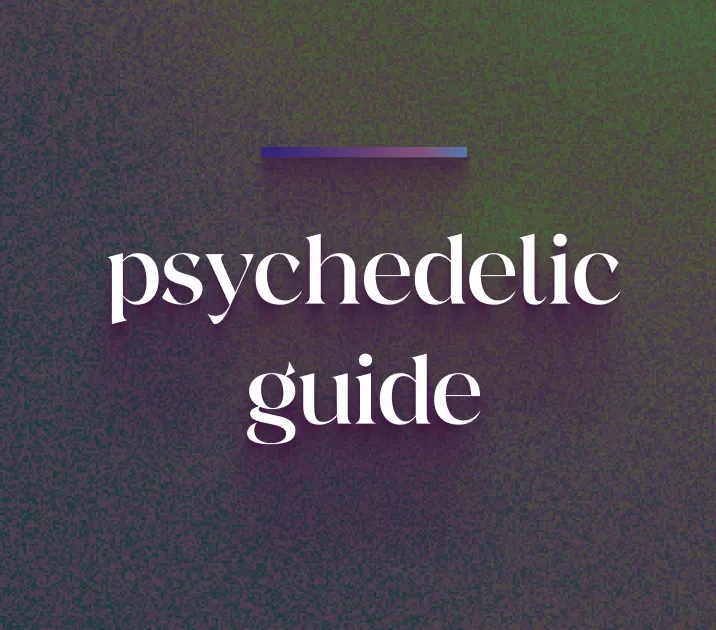




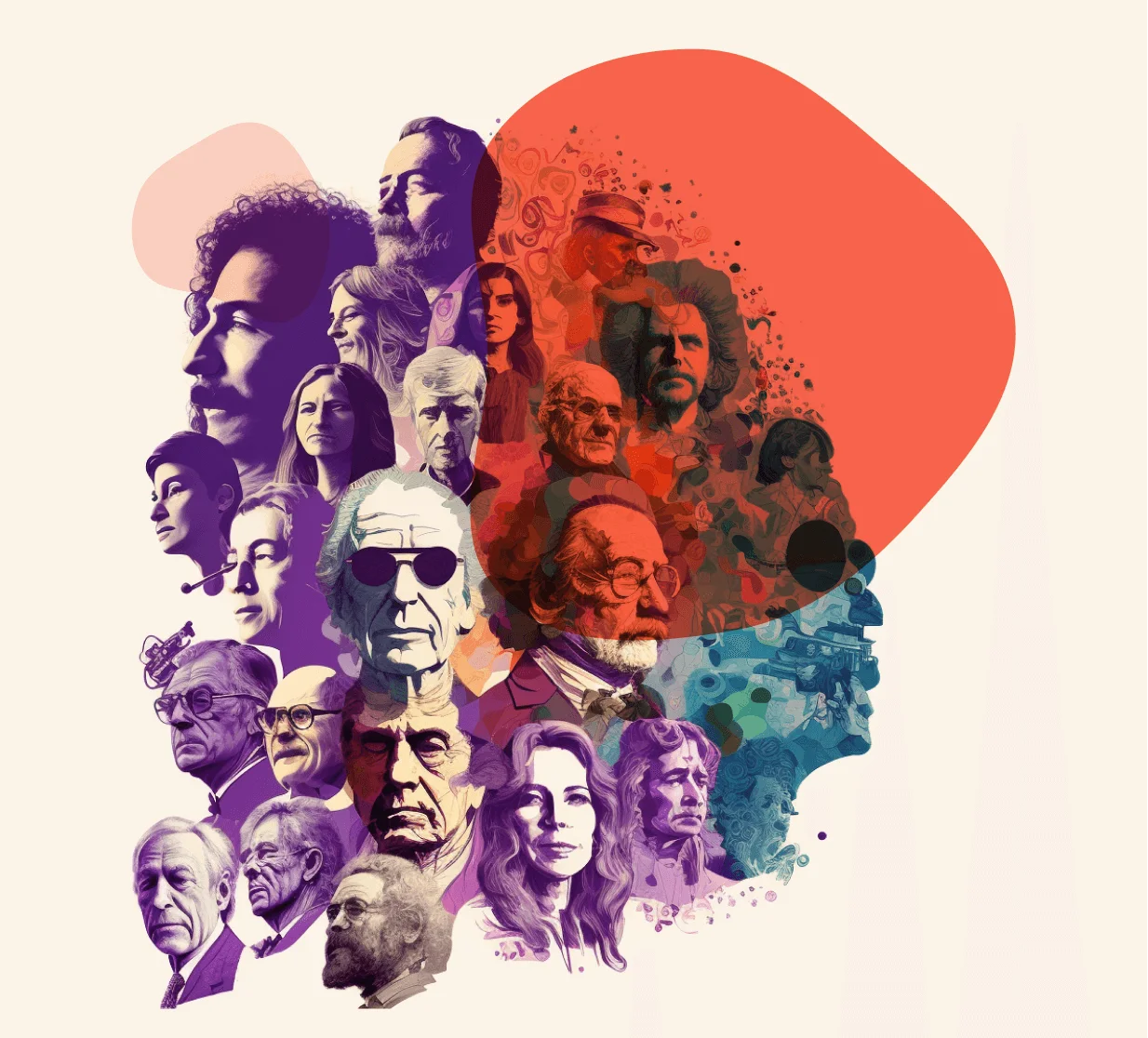

 Ross Dillon
Ross Dillon 